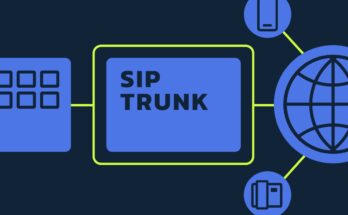In recent times, we have seen the term personalized learning being thrown around as the next big thing in education. Truth be told, the effectiveness of personalized learning has been studied, researched, and understood for quite some time now. As any seasoned educator will tell you, no two students are alike. The learning attitudes, potential, and methods of each student are unique and the most effective way to ensure students’ academic success is by developing tailor-made learning solutions that are best suited to meet the unique learning needs of individual students. In other words, what we need is a highly flexible learning environment where the students have more freedom and control over their learning.
With the development of various technological tools such as eLearning portals, institute ERP, and smart classes, and likewise, educators today have access to a lot more resources than ever before which can be utilized to provide a more flexible and personalized learning environment to the students. Educational institutions across the globe are readily adopting some of the best school management software for improving their productivity and efficiency. Here are seven principles of effective personalized education that we must follow for creating a flexible and personalized learning environment in the classroom that is conducive to student growth. So, without further ado, let’s dive in…
Choose the Best Educators-
Needless to say, the quality of educators is going to be the key determiner of how well a personalized and flexible learning routine is implemented in the class. With online teaching, students can learn any subject from some of the best educators available across the world while sitting in the comfort of their own homes. A good educator should know how to achieve a balance between providing students more control over their own learning while providing guidance and support wherever they deem necessary.
Focus on Engagement-
Educators should focus on making learning more engaging for the students. This can be achieved by introducing a topic and asking students about their ideas and opinions related to the topic before jumping right into it. Student engagement is the most important piece of the puzzle when it comes to personalized learning as it increases student participation and interest in the topic at hand.
Create Lifelong Learners-
Effective learning happens only when we are open and ready for learning anything. As educators, we should teach our students to be self-directed and encourage their sense of curiosity and inquisitiveness. Moreover, we should provide them with ample opportunities to explore and tinker with new ideas. This will help in turning the students into lifelong learners which will help them in the long run.
Explore Different Perspectives-
Exploring different perspectives is a skill that is critical to learning anything effectively and in totality. Ask students to view any problem they come across from different perspectives. Educators could encourage the students to learn new languages, read about various cultures, and explore new ideas to develop their ability to look for other perspectives.
Encourage Introspection-
When the students reflect and ponder over their learning, it is only then that their knowledge truly solidifies. Students come across new topics almost every day. Therefore, it is important to teach them the art of reflection and thinking about their learning in depth for helping them in achieving academic success. If required, ask students to keep a journal in which they write down the new ideas which they learn each day.
Test Your Ideas-
Educators can help the students by getting them to apply their learning in a real-world scenario. Localize student learning by getting them to test their ideas on a regular basis which will help them in understanding the true value of their learning and also how well they understand what they learn.
Imagination-
Educators should use their imagination to truly help students in maximizing their learning potential. Discuss hypothetical scenarios and case studies with the students and ask them what they would do were they put in a particular situation? This will help the students in applying their knowledge to new and different scenarios which will help them in expanding their understanding, awareness, and knowledge.
A flexible and personalized learning environment encourages the students to truly flourish and become the best version of themselves. The principles of personalized learning discussed in this article shall truly help educators in achieving effective personalized learning in their classes.




